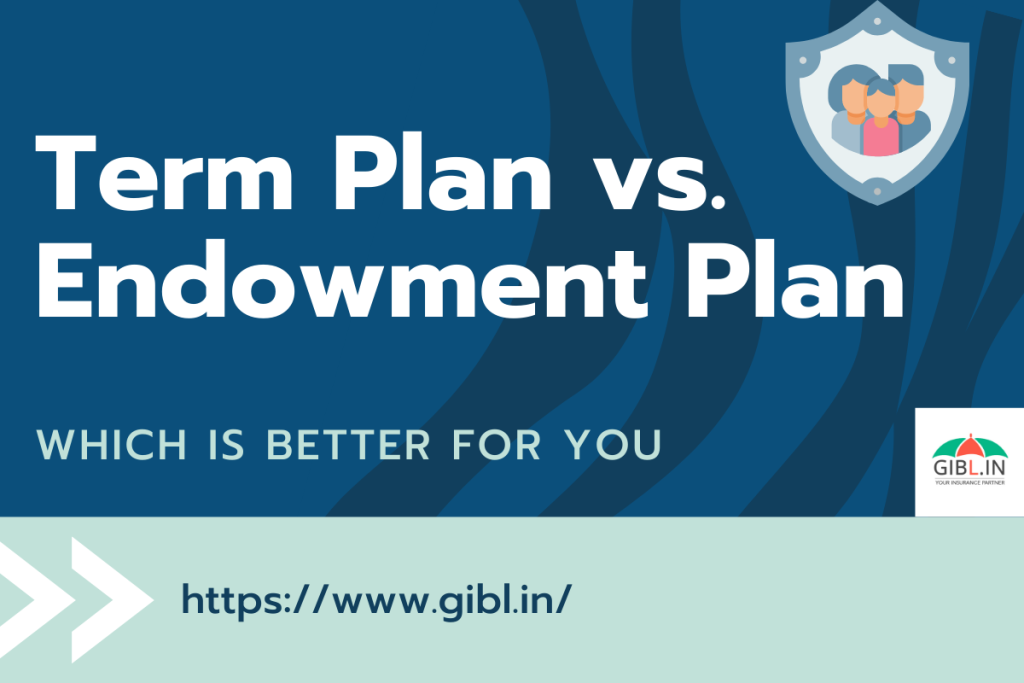Should I Buy A Term Plan Or An Endowment Plan?
Since term insurance protects you for a predetermined amount of time and has the lowest costs, it is the most economical sort of insurance. You can select a term length for your insurance coverage of up to 35 years. The amount of the payments are fixed and won’t change over time. Your dependents will get the benefit amount specified in your term life insurance policy if you pass away suddenly. Term life insurance can be customized by adding riders like a child, premium waiver, and accidental death. Here we discuss which plan is better for you? Term Plan Or Endowment Plan
In India, endowment plans are a common form of life insurance. In that it provides both investment and insurance benefits, it is comparable to a unit-linked insurance plan. An endowment plan, however, can be distinguished from a term plan by a few features. You can save money consistently for a predetermined amount of time when you buy an endowment plan. You can receive a lump sum payment when the insurance matures at the end of the period.
Endowment Plan vs. Term Plan
Here are some contrasts between term and endowment insurance examples:
Premiums
Without the need for additional investments, term insurance offers risk protection. Because of this, term insurance premiums are inexpensive and are due each month from the insured. On the other hand, the maturity advantages of an endowment plan have a tendency to increase premium rates.
The price is further increased by an add-on that is also included. Term insurance is less expensive than endowment insurance.
Sum Assured
If an assured event occurs or the term plan ends, the assurer will pay the policyholder or his or her nominee the predetermined sum guaranteed. When purchasing term insurance, the cash assured amount can be chosen. A term insurance policy’s sum assured is higher than an endowment policy’s sum assured. This shows that a policyholder in an endowment plan needs to pay a high premium in order to have a higher sum insured.
Maturity Benefits and Death Benefits
If the life assured survives until the endowment plan’s expiration date, the policyholder will get the agreed-upon sum assured amount in addition to an additional bonus. Beneficiaries of term plans only to receive death benefits, but these plans also give maturity benefits. Endowment plans, on the other hand, provide both a death and a maturity benefit.
Insurance vs. Investing
The nature of the plan is one of the key differences between a term and an endowment plan. Endowment plans let you save for long-term goals by combining investments and insurance. To help you save money for long-term goals, a term plan combines investment and insurance. To help you save money for long-term goals, a term plan combines investment and insurance.
A term plan combines insurance and investing to let you set money aside for your long-term objectives. In contrast to term plans, which combine insurance and investments to let you save for your goals in the future, term plans are a pure life insurance policy with no additional coverage. Contrarily, there are no chances for long-term savings with term insurance. In an endowment plan, you can receive the whole corpus you paid in interest at the end of the policy.
Conclusion
You and your family place high importance on financial stability. A term insurance policy provides enough money to help his or her family in the long run by acting as the family’s main source of income. Term plans are easier to get and less expensive than endowment policies. Your financial needs and long-term objectives will determine which insurance plan is best for you. If you desire a better future, choose wisely when it comes to your plans.

